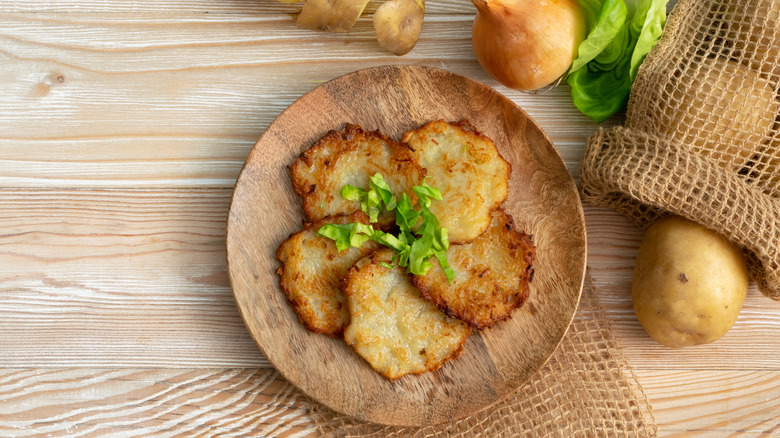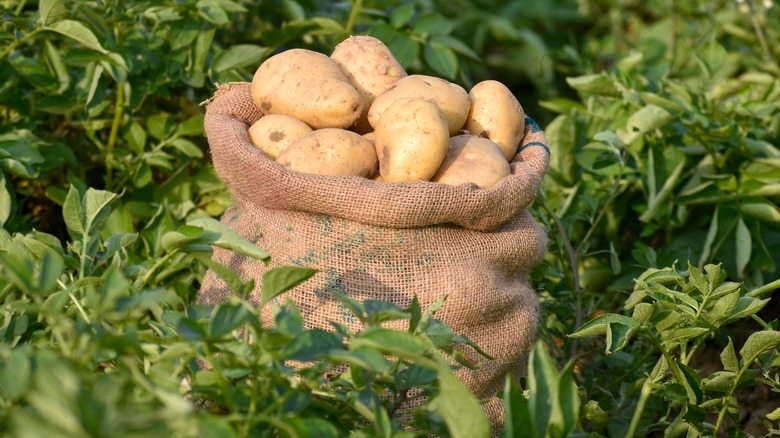How Potatoes Became An Important Part Of Irish Cuisine
Given how strongly associated potatoes are with Irish cuisine, one might assume they're native to Ireland. Yet, that's not so. Potatoes hail from the Andes Mountains, specifically the region of modern-day Bolivia and Peru (via Britannica). Humans have been eating this South American veggie for a long time. Per BBC, the potato was domesticated around 6,000 B.C., later turning into a staple crop. The Inca Empire would freeze-dry potatoes to make them longer-lasting. However, considering that the Inca kingdom didn't form until the 1100's A.D. — according to History — and that taters were domesticated 8,000 years ago, it's clear pre-Inca peoples had been eating spuds for much longer than just a millennium.
In the grand history of potatoes, their European usage is a relatively new trend. The chaotic Columbian Exchange brought spuds to the Old World in the 16th century, and they quickly caught on. This was because they were fairly easy to grow and store, and taters deliver lots of nutrients to eaters. Lately, they've become the fourth most important crop across the globe and the first most important non-grain one in the world. Now, Asian countries are amongst the top cultivators of potatoes. So, why do we think of them as being so Irish?
How potatoes became honorary Irish
The potato came to Ireland between 1586 and 1600, according to History Ireland. The exact means are hard to pin down. The myth says Sir Walter Ralegh introduced spuds to Ireland, but this is based on miscommunication and misinformation. Some claim that Sir Francis Drake is to thank, but that's unsubstantiated, to say the least. Others have been proposed, like English sailors, but Spain seems to have been the likeliest middleman.
Whoever is responsible, the effect was undeniable. Since Ireland has an ideal environment for potato growth, taters became a staple crop for the Irish in the 1700s, per World Potato Congress. These tubers were so reliable and abundant, they came to be seen as a social safety net for hunger. Ireland's booming population depended on them.
Then, in 1845, the Irish Potato Famine struck Ireland (via History). A mold swept across the land, destroying roughly 50% of Irish spuds in its first year, and about 75% of them for the next half-dozen years or so. Farmhands, who counted on potatoes as a core part of their diet, were hit hardest. A million Irish lost their lives and another million emigrated away.
Still, to this day, potatoes are so ingrained in Irish culture that you'll find spud dishes like boxty (potato pancakes) all across the island (via Culture Trip). Tellingly, boxty started its culinary career as a "peasant dish," having kept the masses well-fed. Indeed, like taters themselves, Ireland's love for spuds is hardy and dependable.

